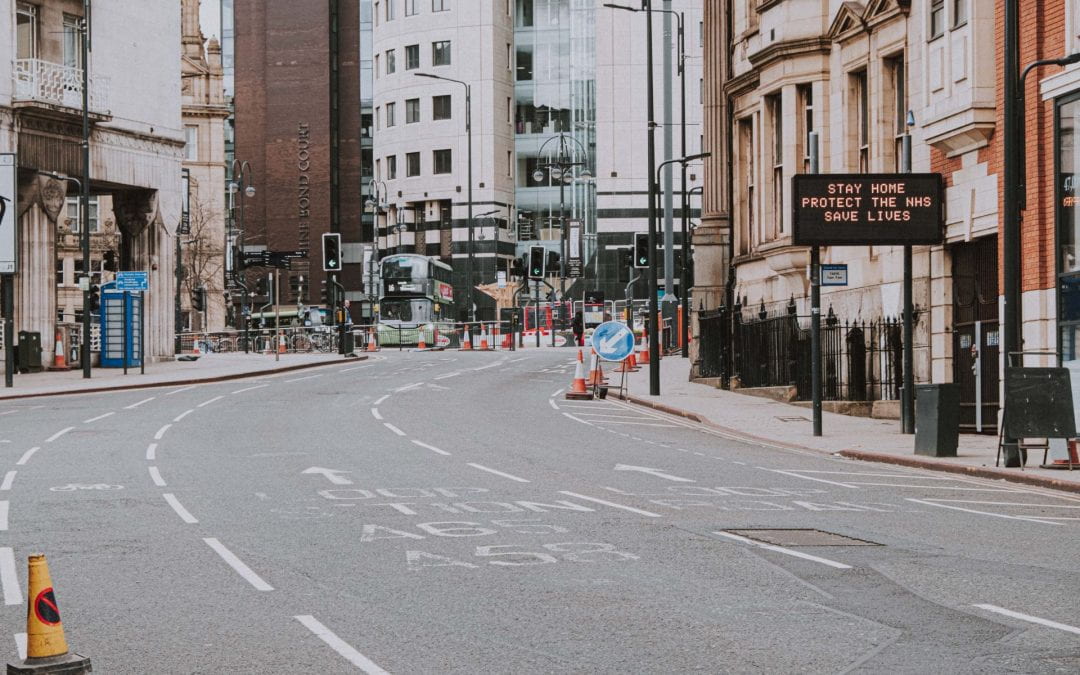By Sir Peter Gluckman
Societal cohesion, mental health, wellbeing, and even democracy may all be at stake if lessons are not learned quickly from this pandemic, writes Sir Peter Gluckman.
The rapid development of multiple Covid vaccines has been a triumph of science. But the entire Covid story is certainly not a triumph for politics and global cooperation. The pandemic rolls on, and the virus continues to mutate. Global vaccine distribution is slow and biased to rich countries, leading to catastrophic outcomes for those without adequate supplies. The longer-term direct and indirect effects have been largely downplayed rather than confronted.
The International Science Council (ISC) became concerned that vaccine development has been hyped by politicians and others, as the end of the pandemic and a return to normality. To address this, the ISC, along with the World Health Organization (WHO) and the Office of United Nations Disaster Risk Reduction (UNDRR), appointed a high-level panel to oversee scenario analysis on the possible path ahead.
I chair the panel, which includes some of the world’s leading scientists, economists, ethicists and public health, epidemiology and infectious disease experts, including fellow New Zealander Sir David Skegg.
The panel’s task is to explore how the pandemic and its consequences will evolve over the next three to 10 years. It will produce a set of comprehensive system maps to inform decision-makers of the long-term impacts of their decisions. We are exploring the various dimensions of the crisis: biology/health, social, economic, geopolitical and governance. These are envisaged as ‘clocks’ that run at different paces but interact – and shape the long-term consequences for the global population.
The biological clock
There is an arms race between viral mutations and vaccine development and production. It is compounded by uneven vaccine access and vaccine hesitancy. In some countries, a worrisome partisan ideology has emerged with anti-scientism at its core, spreading anti-vaccination messages. Ultimately, the biased access to vaccines – in terms of quantity, quality, and speed – will delay the recovery more than anything else. While large groups of susceptible people remain somewhere in the world, mutations are more likely and the risks to non-vaccinated individuals, even in highly vaccinated communities, remain.
The social clock
The societal impacts of the pandemic have been, and will continue to be, highly variable in different countries. We can expect decades-long echoes on mental health and social wellbeing for many reasons, including loss of livelihood, family loss, drastic changes to life plans and prospects, and stress and constraints; all increasing individual and societal vulnerability. Educational disruptions will also have long-term consequences.
The economic clock
The K-shaped economic recovery will see some individuals and businesses doing very well and some very poorly. This trend exacerbates the wealth and income gap in many countries, shifting the political economy towards increased welfare dependency that may take time to move away from. At the macro level, we cannot be sure what the long-term impacts of debt mountains (especially in the global south) and extensive quantitative easing will be.
The governance clock
Even in generally robust democracies, increasingly autocratic decision-making has extended beyond controlling the pandemic. While societies tend to prefer strong leadership and decisive action in crises, there is a risk democratic institutions may be weakened over the long term, and public trust in government will wane. This could impact social cohesion and offer opportunities for disinformation to be even more disruptive.
The geostrategic clock
Before the pandemic, the geostrategic order was becoming increasingly unstable and the multilateral system has been found wanting. From the outset, Covid and its consequences created opportunities for geostrategic games to be played which clearly influenced the early stages of the pandemic, with tragic consequences in some countries. The games continue with vaccine nationalism and vaccine diplomacy, which in some cases is used as a distraction, creating opportunities for some and challenges for others.
Knowns and unknowns – mapping future scenarios and key decisions
Defining and dissecting the interacting factors influencing the outcomes of each ‘clock’ and how these influence factors within the other clocks allows us to map possible scenarios flowing from different combinations of decisions and actions. It is a useful tool to highlight key decision points that may lead to poor or better overall outcomes.
What is clear is that governments should be thinking very long-term about the many interrelated consequences of Covid which has stressed many systems that were already under pressure before the pandemic. And it has major lessons for how the multilateral system has failed when we look at other existential issues such as climate change.
The mix of issues ahead compound and intersect with climate change and environmental degradation, shifting demographics and social tensions. Ultimately societal cohesion, mental health, individual and societal wellbeing, and even democracy may all be at stake if lessons are not learned quickly. Now is the time for governments and other key actors to recognise that their self-interest is best served by collective action for the global commons.
This article was originally published on Newsroom and was republished with permission. For the original, click here.
Sir Peter Gluckman is the Director of the Centre for SPDS at the University of Auckland.
For more information on COVID-19, head to the Ministry of Health website.
Disclaimer: The ideas expressed in this article reflect the author’s views and not necessarily the views of The Big Q.
You might also like:

